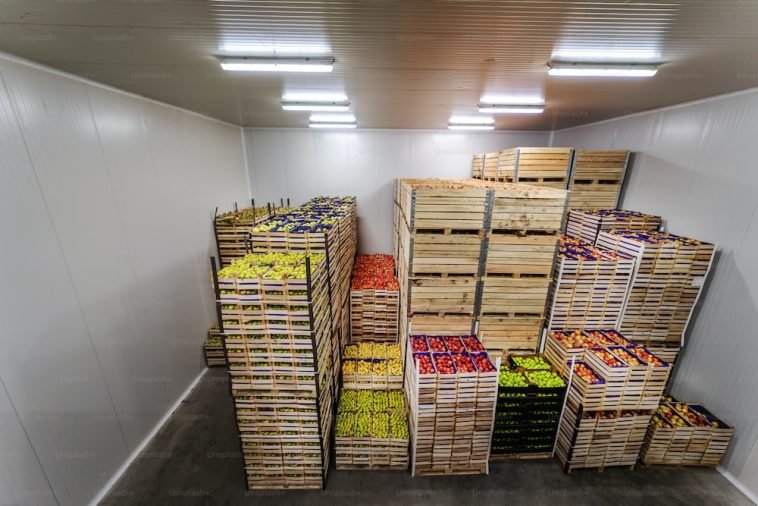Let me tell you something I’ve learned from years of building businesses: the most resilient opportunities often solve very basic, very real problems. And in Nigeria, one of the most persistent problems is food preservation.
We produce incredible amounts of fresh food, but so much of it spoils before it ever reaches a consumer. That loss is a tragedy for farmers and a major cost for everyone else.
This gap isn’t just a problem; it’s a massive business opportunity. Starting a cold room business puts you right at the heart of the solution.
It’s a B2B service with consistent demand, and it can become a profitable, sustainable income stream if you set it up correctly. I’ve advised clients in this space and seen the models that work.
It’s not a get-rich-quick scheme—it’s an infrastructure play. And right now, the market needs that infrastructure more than ever.
If you’re ready to build a business with tangible assets and recurring revenue, here’s my straightforward, step-by-step guide on how to start a cold room business in Nigeria.
Step 1: Understand the Market and Define Your Niche
You don’t just build a cold room and hope customers come. You need a strategy. The “cold storage” market is broad. Will you serve:
- Fishermen and seafood sellers? This requires very low temperatures.
- Poultry and meat wholesalers? Demand is often seasonal (like during festive periods).
- Farmers’ cooperatives (vegetables, fruits)? Think tomatoes, peppers, onions. This can prevent the glut-and-scarcity cycle.
- Pharmaceuticals and vaccines? This is a more specialized, high-stakes niche.
- Event planners and hospitality businesses? For bulk drinks and perishable ingredients.
Spend time talking to potential users in your target area. What are they currently paying for spoilage? Where do they store goods now? This research isn’t optional; it tells you what size, temperature range, and location will make your service indispensable.
Step 2: Craft a Simple, Realistic Business Plan
You’re an entrepreneur, not a bank. Keep this plan practical. It needs to answer:
- Startup Costs: What will it take to get your doors open? (We’ll break down costs next).
- Pricing Model: Will you charge by the basket, by the kilogram, by the pallet, or by the day/week? Visit existing cold rooms (if any) to gauge rates.
- Operational Costs: Biggest ones are diesel for your generator and maintenance. Electricity is not a reliable cost to base your math on.
- Revenue Projections: Based on your capacity and pricing, what’s a realistic monthly income once you’re at 60%, 80%, and 100% capacity?
This document isn’t for show. It’s your roadmap to avoid nasty financial surprises.
Step 3: Breakdown of Costs & Securing Funding
Let’s talk numbers. This is where dreams meet reality. Costs vary wildly based on size and automation, but here’s a rough framework:
- Cold Room Unit & Installation: This is your largest capital expense. A good-quality, new 10ft x 10ft cold room with a solid chiller unit can start from around ₦3.5 million. Larger units (20ft, 40ft containers) go up from there. You can explore reputable suppliers of new or quality used units. Never compromise on the cooling system.
- Power Source: This is critical. You need a heavy-duty standby generator (25-40kVA minimum). Budget ₦1.5 million to ₦3 million. Solar hybrid systems are a fantastic, cost-saving long-term investment, though the initial outlay is higher.
- Location & Premises: You’ll need to rent or acquire land in a strategic location—close to a market, port, or agricultural zone. Factor in at least a year’s rent upfront.
- Business Registration & Licenses: Register your business with the CAC. You may need licenses from NAFDAC, especially if storing pharmaceuticals.
- Working Capital: You need funds for diesel, staff salaries, security, and maintenance for at least the first 6 months.
Total realistic startup budget: For a small to medium-scale operation, have between ₦5 million to ₦10 million ready. Funding can come from personal savings, cooperative loans, or angel investors who understand agriculture and infrastructure.
Step 4: Location, Setup, and Equipment Sourcing
Your location is a make-or-break decision. Accessibility for trucks, security, and proximity to your target customers are key. Once you have a site:
- Prepare the foundation: Ensure a solid, level base for the cold room structure.
- Source your equipment: Work with proven vendors. I recommend getting references from other cold room owners. Key brands to look for include Thermocool, LG, and Carrier. Have a trusted technician check any used equipment before you buy.
- Installation: Let the professionals handle this. Proper insulation and sealing are what keep efficiency high and power costs (somewhat) manageable.
Step 5: Day-to-Day Operations and Marketing
Your system is up and running. Now, how do you run it and fill it?
- Hire Reliable Staff: You need an attendant/manager and a security person. The manager must be trustworthy, literate, and able to manage intake/logs.
- Create a Log System: Implement a strict system for logging clients’ goods in and out. Use receipts, tags, or a simple digital spreadsheet. Clarity prevents disputes.
- Market Your Service: Go offline first. Your first clients are nearby.
- Visit the major markets, meet association heads (fish sellers, tomato sellers).
- Offer an introductory rate for the first month.
- For online, a simple Google Business Profile is essential. When people search “cold room near me,” you must appear. Create basic content on Facebook or Instagram showing your facility, explaining the benefits of reduced spoilage. This isn’t about virality; it’s about local discoverability.
Step 6: Focus on Sustainability and Growth
Your reputation will be built on reliability. When a client’s N500,000 worth of chicken is in your care, that trust is everything. Maintain your generator, service your chiller units regularly, and always communicate openly with clients.
As you generate profit, consider:
- Adding more units.
- Investing in solar to slash diesel costs.
- Offering pickup/delivery logistics.
- Expanding to a new location in a different agricultural zone.
Frequently Asked Questions (FAQs)
How profitable is a cold room business in Nigeria?
It can be very profitable, but the margin is in volume and efficiency. After covering your major fixed costs (rent, generator fuel, salaries), your profit grows with every additional basket you store.
The key is maintaining high occupancy rates. A well-run, medium-sized cold room can bring in six figures in net profit monthly.
What is the biggest challenge?
Power, without a doubt. The cost and reliability of electricity (or your alternative) will determine your operational costs and your service reliability. Investing in a good generator and planning for a solar hybrid system from the start is the smartest move.
Can I start small?
Absolutely. Some start by serving a hyper-local community, storing goods for just a few vendors in a small unit.
This lets you learn the ropes, build trust, and reinvest profits into scaling. Don’t let the ideal be the enemy of the good. Start where you are, with what you have.
How do I handle disputes over spoiled goods?
This is why your intake log is your legal document. Have a clear, signed agreement that outlines terms: storage duration, temperature settings, and your liability limits.
While you must do everything to ensure your equipment runs, you cannot be liable for goods that were already nearing spoilage when they were brought in. Transparency is your best policy.
Final Thoughts
Starting a cold room business is about building a pillar of your local economy. You’re not just selling storage; you’re providing stability for other businesses, reducing waste, and creating a tangible asset that can support your wealth for years.
It requires upfront capital, operational diligence, and a mindset geared toward solving a fundamental problem. But in a country where the demand for preservation so drastically outstrips supply, it’s a venture rooted in undeniable logic.
I’ll leave you with this: In a world of fleeting digital trends, there’s something powerfully durable about building a business that literally supports the food chain. What problem in your own community is so fundamental that solving it could become the foundation of your next venture?





GIPHY App Key not set. Please check settings